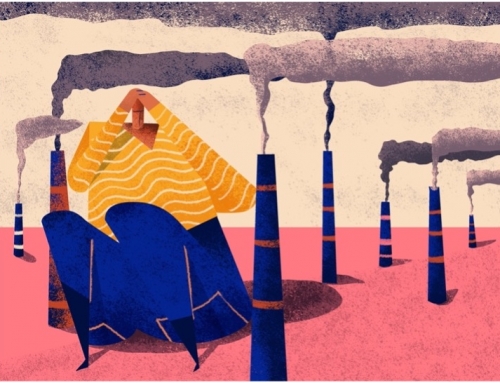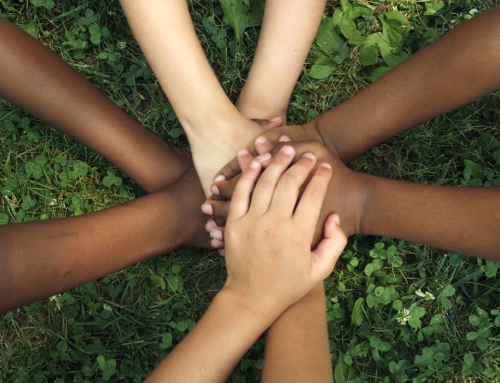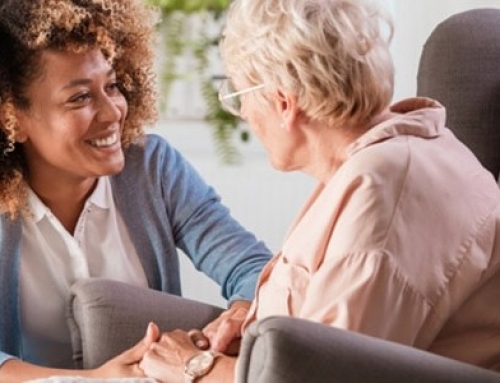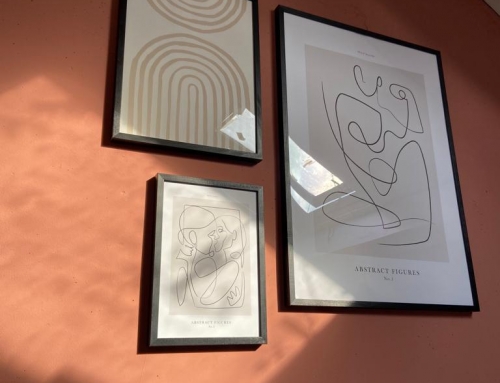
You do not know how it feels until you experience it yourself. In this case, I hoped that I would never get to know how it feels. Yet, sometimes life happens and you better go with it – there is no point in fighting it. I am talking about the results of my COVID-19 test; positive. And at that moment, I was not positive at all but, I want to dive into how realising my patterns made me adapt my beliefs.
Negative to be positive
To be honest, I cried when I saw that my test results were positive. I did not feel well so, my intuition was set to a positive test result. However, the moment of confirmation made my world stop. I started thinking about all the things I could not do, the meetings I needed to cancel and the people I needed to inform. While actually, I did not have the energy for any of that. Yet, I went against my intuition and did all of the above-mentioned actions. During the following days, the virus became stronger and I started to feel very sick. Still, I did not want to accept this and every time some contacted I said ‘I will manage’ or ‘do not worry about me’.
Eventually, it took me days to realise that it takes strength to say that you are not okay. On many occasions, this shield helps me to stay on track of things. To seem like a structured person who is ready to take on any challenge. Man-o-man, how I underestimated this situation. Being on your own in a room for ten days gives you hours to think about life. I started to reflect upon how I am doing, how I portray myself to the people close to me, and my values.
‘’I am doing okay’’
I think most people agree with me on the following two statements. Firstly, a pandemic is far from an ideal situation. Secondly, graduation is a stressful period where you get to know yourself. You can agree with me, or not. However, both of these statements answer ‘yes’ for me. Yet, I managed to find a way how to accept both. I learned to see things from a positive point of view. Additionally, I learned to focus on how we can grow during the mundane moments of life which I explain more deeply in my previous blog. But during this quarantine, I start to question if I believe this myself. During those days, I did not have small moments of joy; I did not felt resilient; I was not continuing work which increased my stress immensely. Moreover, why do I advocate an idea which does not work in my situation?
Asking myself this question only caused me to be more upset about the situation. I lost control and I could not change anything about the situation. I felt more fragile than ever. I felt that this was holding me back from feeling resilient. My emotions were not supporting me, so, I decided to objectify the situation and dive deeper into what the reason is for my fragility.
Irrational beliefs
Albert Ellis, cognitive-behavioural therapist, analyses external events and how they affect us in his ABC model (Ellis, 1991). In origin, activating events lead to (irrational) beliefs that consequence our emotions. Yet, Ellis (1991) states in his ABCDE model that it is not a simple matter of an unchangeable process in which events lead to beliefs that result in consequences. Dividing believes into rational and irrational to steer accepting the rational and dispute the irrational.
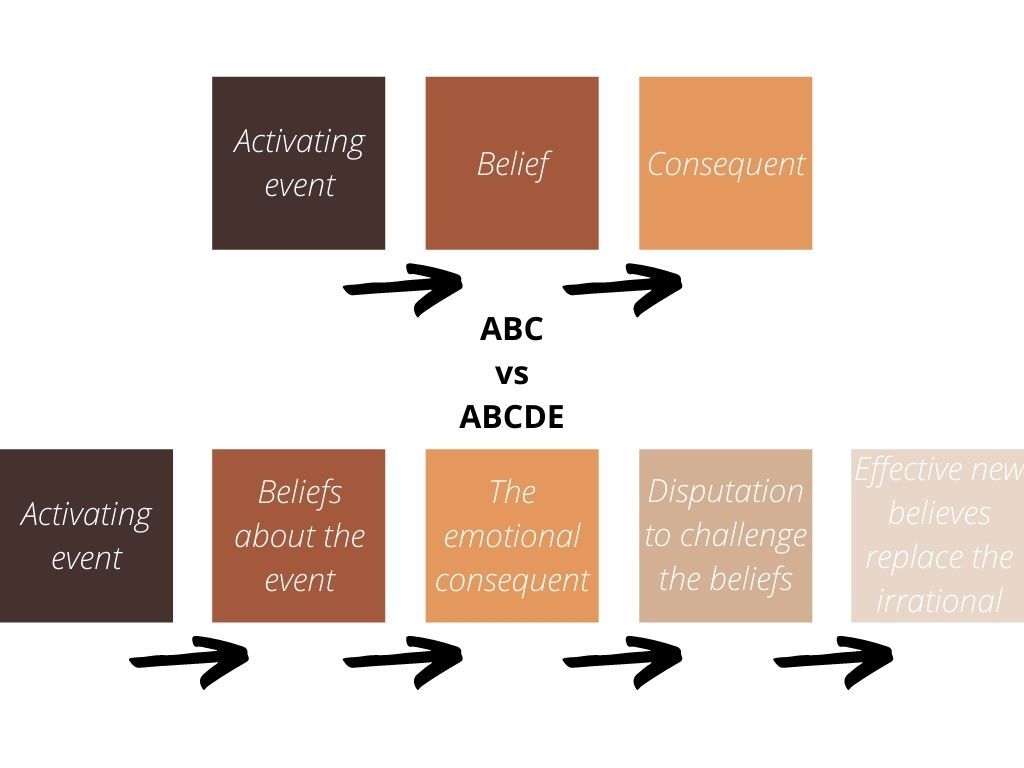
For example, in my case, the activating event was that I was tested positive for COVID-19. This led me to believe that I could forget about my project, graduating in time, peer pressure and making my family feel better. These thoughts led to irrational consequences that made me go against my intuition. Yet, I did not realise that during that moment. By analysing, I learned that these irrational beliefs caused unhealthy consequences that must be a dispute and turn into a rational belief. By acknowledging rational beliefs such as everyone understands the situation, I have the support of my peers, and what does not happen now can happen in the future lead to healthier consequences.
Antifragile
The example shows how the process does not stop after the consequences of the beliefs you create due to the activating events. Reflecting on this process shows me the strength that things can change whenever you put them into a new perspective. Yet, I still felt fragile in my newfound perspectives and I did not know why. For that reason, I decided to continue my search and objectify the current activating events.
Nassim Taleb (2014) advocates the concept of antifragility – things that gain from disorder. Taleb (2014) claims that some things benefit from shocks; they thrive and grow when exposed to volatility, randomness, disorder and other stressors. This makes antifragility go beyond resilience. Resilience resists shocks and grows back to its original form; the antifragile gets better (Street, 2021). A well-known example is a fight between Hercules and the Hydra. Every time he slices off one of her heads, two grow back. Every time the beast is hurt, it gets stronger.
Antifragility allows us to deal with unknown situations and execute them well. This shows that we are better at doing than we are at thinking, thanks to antifragility. In essence, the concept explains that you learn from mistakes that you and others make to outgrow your capacities by taking risks and expose yourself to stressors.
The discussion of values
Taleb (2014) opens the discussion of how we can respond to stressors that we cannot affect. I can find myself in his theories, yet I struggle with my values in this. I understand that for a big and complex system, the benefit of stock and thrive in volatile environments since the pressure can open new opportunities. Transformation cannot happen when everyone follows the same pattern. For example, evolution itself is incredibly antifragile. We have evolved from our ancestors based on the genetic features and traits which helped us survive the most and succeed. However, that also meant many humans before had to die.
In this example, I touch upon a very important value. It shows that people have to fail for others to flourish. For that reason, I have a value conflict since I do not want others to not succeed for something else to grow. Yet, this is the way how the system works. We need a new approach to leading ourselves and other people through times of change that is different from how we used to lead ourselves. And still, I believe resilience is crucial for this. Resilience, on a personal level, can help you to feel whole – you are stronger than you think. Resilience on a group level is the foundation that wants to expand by the power of people – co-creation.
How did this help me?
The concept of antifragility helped me dispute unhealthy beliefs and replace them with rational and more effective ways of thinking. I gained new perspectives on the topic of what resilience means for me. This made me realise that I was stuck in a pattern of believing that resilience was the perfect outcome to feel better. Yet, it is a tool of becoming. I mean that in essence, you are already strong enough, only sometimes you have to work a little bit harder to get through your perceptions and patterns.
I learned that by accepting that some things do not work, you eventually become stronger. You learn to value new things in life such as the mundane moments. But you also learn to appreciate yourself. With that said, I leave my old pattern of always saying that everything is fine. I want to learn from the things that do not work out the first time. And of course, learning is not something you do on your own and in which you reach your goals in the upcoming hours or days.
Bibliography
Ellis, A. (1991). The revised ABC’s of rational-emotive therapy (RET). Journal of Rational-Emotive and Cognitive-Behavior Therapy, 9(3), 139–172. https://doi.org/10.1007/bf01061227
Selva, J. B. (2021, February 17). Albert Ellis’ ABC Model in the Cognitive Behavioral Therapy Spotlight. Retrieved 16 April 2021, from https://positivepsychology.com/albert-ellis-abc-model-rebt-cbt/
Street, F. (2021, March 4). A Definition of Antifragile and its Implications. Retrieved 16 April 2021, from https://fs.blog/2014/04/antifragile-a-definition/
Taleb, N. N. (2014). Antifragile. New York, United States: Penguin Random House.


